Emergency Preparedness for Frequent Travelers
Traveling can be one of life's greatest joys, offering new experiences, cultures, and adventures. However, it can also come with its fair share of challenges, especially when unexpected emergencies arise. Whether you're jet-setting across the globe or taking a weekend road trip, being prepared for emergencies is crucial. Imagine being in a foreign country and suddenly facing a medical issue or losing your passport; the panic can be overwhelming. But with a little foresight and planning, you can navigate these situations with confidence. In this article, we will explore essential strategies and tips for frequent travelers to effectively prepare for emergencies, ensuring safety and peace of mind while on the go.
Before we dive into the nitty-gritty of emergency preparedness, it's essential to understand what kind of emergencies travelers typically encounter. Common travel emergencies include medical issues, natural disasters, theft, and lost belongings. For instance, imagine hiking in a remote area and twisting your ankle—what would you do? Or consider the possibility of being caught in a sudden storm while exploring a new city. Recognizing these potential situations helps you develop effective preparedness strategies. Knowing the risks associated with your destination allows you to plan accordingly, ensuring you're equipped to handle any bumps along the way.
Having a well-structured travel emergency plan is crucial to your safety and peace of mind. Think of it as your travel insurance for the unexpected. An effective plan should include communication strategies, emergency contacts, and a clear understanding of local resources. This way, when things go awry, you won't be scrambling for solutions. Instead, you'll have a roadmap to follow, making it easier to navigate through the chaos. So, what should you include in your emergency plan?
One of the first steps in your travel emergency plan is maintaining a list of emergency contacts. This list should include local authorities, your country's embassy, and family members back home. In the heat of the moment, having quick access to these contacts can make a world of difference. Imagine being in a foreign country and needing assistance—having a list ready can save you precious time. Make sure to keep this list both digitally and in a physical format, just in case your phone dies or gets lost.
In today's digital age, leveraging technology can significantly enhance your communication during emergencies. Messaging apps like WhatsApp or Signal allow you to stay connected with loved ones without incurring hefty international fees. Additionally, location-sharing features on smartphones can help your family track your whereabouts in case of an emergency. Think of it as your digital safety net—always there, even when you're miles away from home. Just remember to keep your devices charged and your apps updated!
Having local contacts can be a game-changer during emergencies. Whether it's hotel staff, tour guides, or even friendly locals, these connections can provide immediate assistance. Before you travel, take some time to establish these connections. A simple introduction can go a long way. For example, if you're staying at a hotel, don't hesitate to ask the front desk about local emergency services or tips for staying safe in the area. Building these relationships can provide you with valuable resources and insights that can be lifesavers in critical situations.
Another vital aspect of emergency preparedness is understanding travel insurance. While it might seem like an extra expense, having adequate coverage can alleviate financial burdens during emergencies. Imagine needing medical attention in a foreign country—without insurance, the costs can skyrocket. Before you travel, take the time to research different insurance policies, ensuring you understand the details and what's covered. This way, you can travel with peace of mind, knowing that you're financially protected in case the unexpected happens.
An emergency kit tailored for travel can make a significant difference in your preparedness. Think of it as your personal toolbox for handling emergencies. Knowing which items to pack is crucial, as they cater to health, safety, and communication needs. Consider packing items like first-aid supplies, portable chargers, and water purification tablets. You never know when these items might come in handy. Additionally, having a compact emergency kit can provide you with a sense of security, knowing that you're ready for whatever comes your way.
When packing your emergency kit, it’s essential to include a variety of supplies. Here are some must-have items:
- First-aid supplies: Band-aids, antiseptic wipes, and pain relievers.
- Portable charger: Keep your devices powered up.
- Water purification tablets: Essential for safe drinking water.
- Flashlight: A reliable light source for emergencies.
These items can cater to various emergencies, ensuring you're well-equipped to handle any situation that arises during your travels.
Regular updates to your emergency kit ensure its effectiveness. Just like your travel plans, your emergency kit should evolve. Check expiration dates on medications and replace outdated items. Imagine needing a band-aid and finding out it's expired—talk about a letdown! By keeping your kit fresh and updated, you can travel with confidence, knowing that you're prepared for anything that comes your way.
Researching your travel destinations can help you anticipate potential risks. Before you embark on your journey, take some time to familiarize yourself with local conditions, health advisories, and safety tips. Knowledge is power, and staying informed can significantly enhance your preparedness. For instance, if you're traveling to an area prone to natural disasters, understanding the local emergency protocols can make a huge difference in your safety.
Various travel apps provide real-time information on safety and emergencies. Apps like TripIt and Google Maps can help you stay organized and informed about your surroundings. Additionally, local news apps can keep you updated on any potential risks or emergencies in the area. Think of these apps as your travel companions, always ready to provide you with valuable insights and support.
Connecting with local communities can enhance your safety and preparedness. Engaging with locals can provide you with valuable insights and support during emergencies. Whether it's joining a local tour or simply striking up a conversation at a café, building these connections can enrich your travel experience and offer you a sense of security. Locals often have firsthand knowledge of the area and can guide you on the best practices for staying safe.
Q1: What should I do if I lose my passport while traveling?
A: Contact your country's embassy or consulate immediately for assistance. They can guide you through the process of getting a replacement.
Q2: Is travel insurance really necessary?
A: Yes, travel insurance can protect you from unexpected medical expenses, trip cancellations, and lost belongings, providing peace of mind during your travels.
Q3: How often should I update my emergency kit?
A: It's a good practice to check your emergency kit every six months, replacing expired items and adding new essentials as needed.
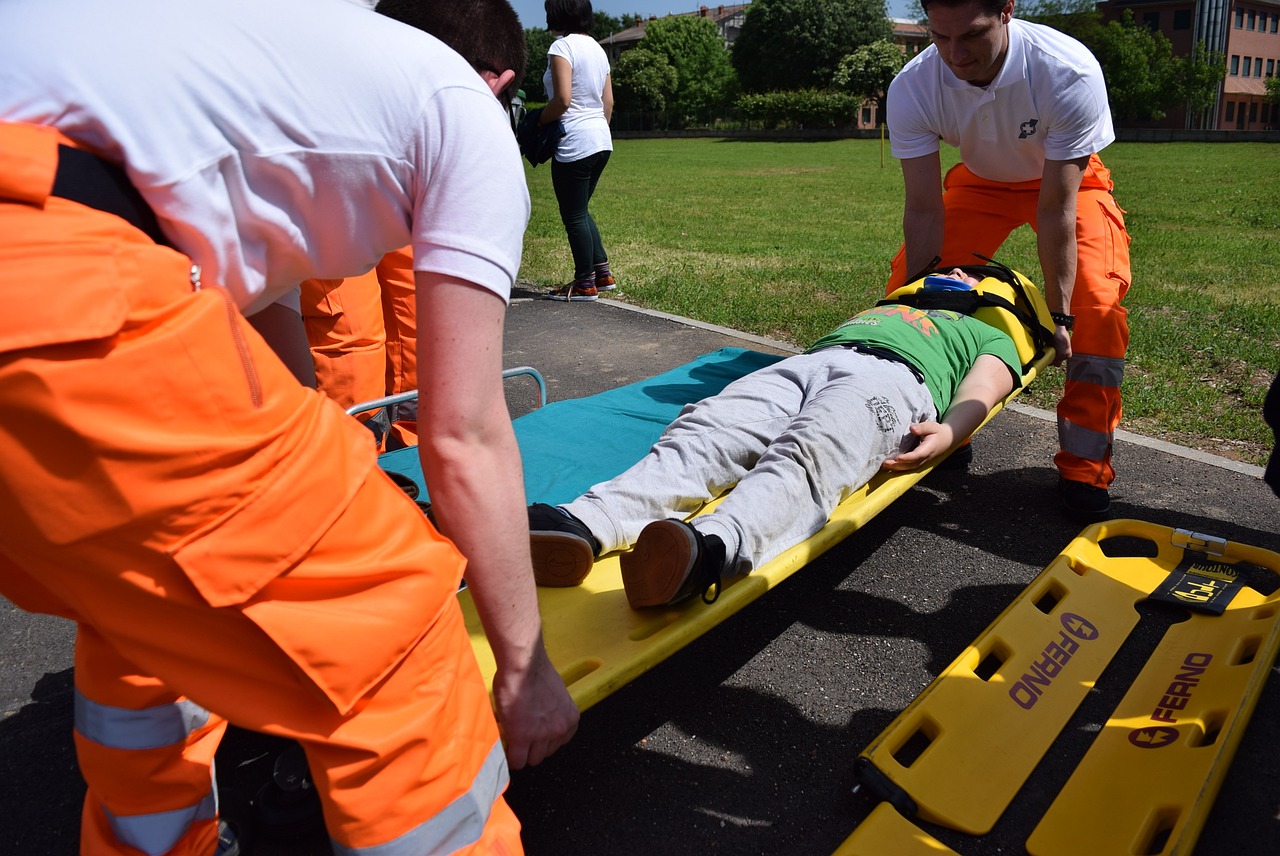
Understanding Common Travel Emergencies
When you're on the go, the last thing you want to think about is what could go wrong. However, being aware of potential travel emergencies is crucial for your safety and peace of mind. Emergencies can arise in various forms, and understanding these situations helps you develop effective strategies to handle them. Imagine you're enjoying a beautiful sunset in a foreign land, and suddenly, you find yourself in a medical emergency or facing an unexpected natural disaster. How would you react? Would you be prepared?
There are several common travel emergencies that every frequent traveler should be aware of:
- Medical Issues: Whether it's a sudden illness, an allergic reaction, or an injury, medical emergencies can happen anywhere. Knowing how to access medical care in a foreign country is vital.
- Natural Disasters: Earthquakes, hurricanes, and floods can occur without warning. Understanding the risks associated with your destination and having a plan in place can save lives.
- Lost Belongings: Losing your passport, wallet, or luggage can be stressful and disorienting. Having a strategy for reporting lost items and securing replacements is essential.
By acknowledging these potential emergencies, you can take proactive steps to prepare. For instance, before you travel, research the healthcare facilities available at your destination. Are there hospitals nearby? What are the emergency numbers? This kind of information can be invaluable in a crisis.
Additionally, consider the natural disaster risks specific to your travel location. If you're headed to a region prone to earthquakes, familiarize yourself with safety protocols. Similarly, if you're traveling during hurricane season, keep an eye on weather reports and local advisories.
Lastly, don’t underestimate the importance of securing your belongings. Use anti-theft bags, keep your passport in a safe place, and consider having digital backups of important documents. This way, if the unexpected happens, you’ll be one step ahead, ready to tackle whatever comes your way.
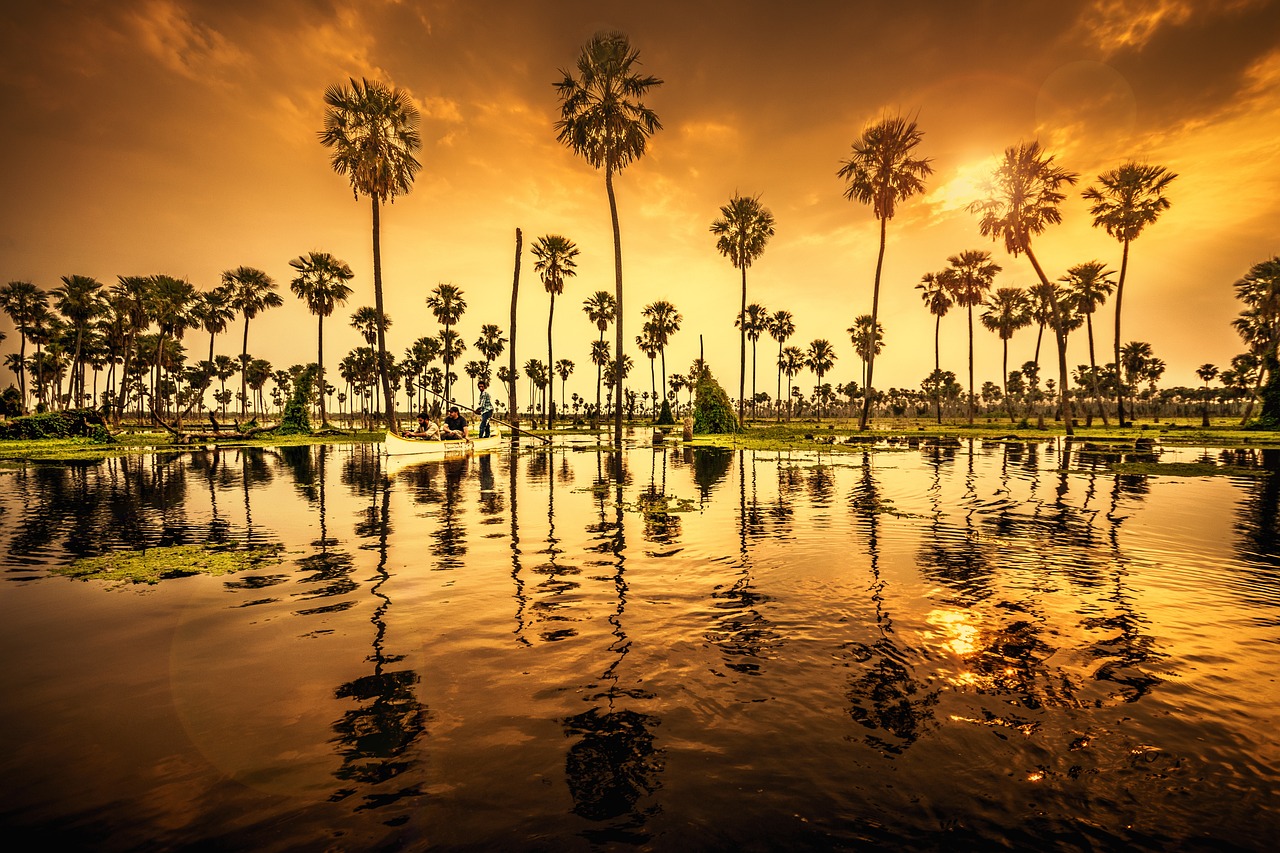
Creating a Travel Emergency Plan
When you're off exploring the world, the last thing on your mind is likely an emergency. However, being unprepared can turn a minor hiccup into a major disaster. That's why creating a travel emergency plan is essential for every frequent traveler. Think of it as your safety net; it’s there to catch you when things go awry. So, what does an effective plan look like? Let's dive into the key components!
First and foremost, you need to establish communication strategies. In the event of an emergency, whether it’s a sudden illness or a natural disaster, knowing how to reach out for help is crucial. Make a list of important contacts, including local authorities, your country's embassy, and family members back home. This way, you can easily reach out to someone who can assist you or provide support. Remember, in times of stress, having a clear plan can make all the difference.
Maintaining a list of emergency contacts is vital. This should include not only local authorities but also family members who need to be informed in case of an emergency. It’s like having a lifeline in your pocket. You can create a simple table to organize this information:
| Contact Name | Relationship | Phone Number | |
|---|---|---|---|
| John Doe | Brother | +1-234-567-8901 | john@example.com |
| Jane Smith | Local Embassy | +44-123-456-7890 | jane@example.com |
Having this information readily available can save precious time during a crisis. Make sure to store it in a secure yet accessible place, such as your phone or a physical copy in your wallet.
In today’s digital age, technology can be a lifesaver. Messaging apps like WhatsApp or Viber allow you to communicate without incurring hefty international charges. Additionally, consider using location-sharing features on apps like Google Maps to keep your loved ones informed about your whereabouts. This way, if something goes wrong, they’ll know where to look for you. It's like having a digital safety beacon shining brightly, guiding your family to you in a time of need.
Before you even set foot in a new destination, it’s wise to establish local contacts. This could be hotel staff, tour guides, or even acquaintances you meet along the way. Having someone on the ground who knows the area can provide immediate assistance during emergencies. They can offer insights into local safety protocols, recommend nearby hospitals, or even help you navigate tricky situations. Think of them as your local guardian angels, ready to swoop in when you need help the most.
In conclusion, creating a travel emergency plan is not just about being cautious; it's about empowering yourself. By establishing communication strategies, identifying key contacts, leveraging technology, and building local connections, you can travel with confidence. You’re not just a tourist; you’re a savvy traveler equipped to handle whatever comes your way!
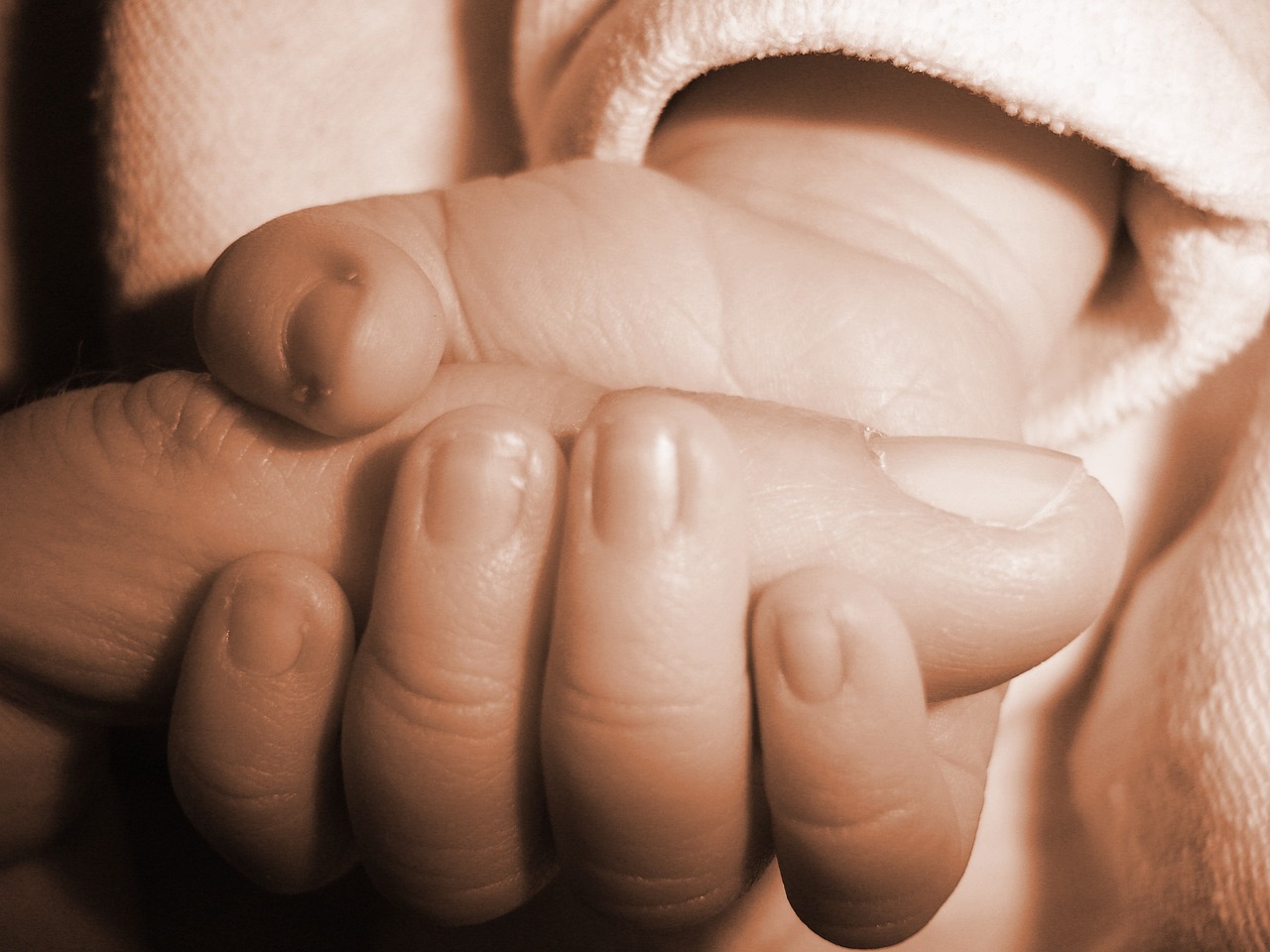
Identifying Emergency Contacts
When you’re traveling, the last thing you want is to find yourself in a situation where you need help but don’t know who to call. That’s why before your trip is crucial. Imagine being in a foreign country, feeling lost and overwhelmed, and realizing you have no idea who to reach out to. It can be a daunting thought! To avoid this, create a comprehensive list of contacts that includes not only family and friends but also local authorities and services.
Start by jotting down the contact details of your family members and close friends. It’s important to have at least one person back home who knows your itinerary and can be your point of contact in case of an emergency. Next, consider adding the contact information for your country's embassy or consulate in your destination. These institutions can provide vital assistance, from replacing lost passports to offering legal advice in emergencies.
Additionally, don’t forget to include local emergency services numbers. For example, in many countries, dialing 112 will connect you to emergency services, but this is not universal. Research the specific numbers for police, fire, and medical services in your destination. You might even want to write these down on a card that you can keep in your wallet or travel pouch, ensuring they’re easily accessible.
Here’s a quick reference table to help you organize your emergency contacts:
| Contact Type | Name | Phone Number | Notes |
|---|---|---|---|
| Family/Friend | John Doe | (123) 456-7890 | Emergency contact at home |
| Embassy/Consulate | U.S. Embassy | (987) 654-3210 | Location: City Center |
| Local Emergency Services | Police | 112 | General emergency number |
By having this information readily available, you can significantly reduce your anxiety and enhance your safety. Also, consider sharing your travel plans with a trusted friend or family member who isn’t traveling with you. This way, someone always knows where you are and can act quickly if something goes wrong.
In summary, identifying and organizing your emergency contacts is a proactive step that can make all the difference in a stressful situation. It’s like having a safety net beneath you—one that ensures you’re never truly alone, no matter where your travels take you. So, before you pack your bags, take a moment to create your emergency contact list. It’s a small effort that can lead to big peace of mind!
- What should I do if I lose my phone while traveling? - Immediately contact your service provider to report it lost. If you have a backup contact list, reach out to your emergency contacts using another device.
- How can I ensure my contacts are accessible offline? - Save important contact numbers in a physical format, like a notepad, or use a secure app that allows offline access.
- What if I don't speak the local language? - Learn a few key phrases in the local language or use a translation app to help communicate with emergency services.
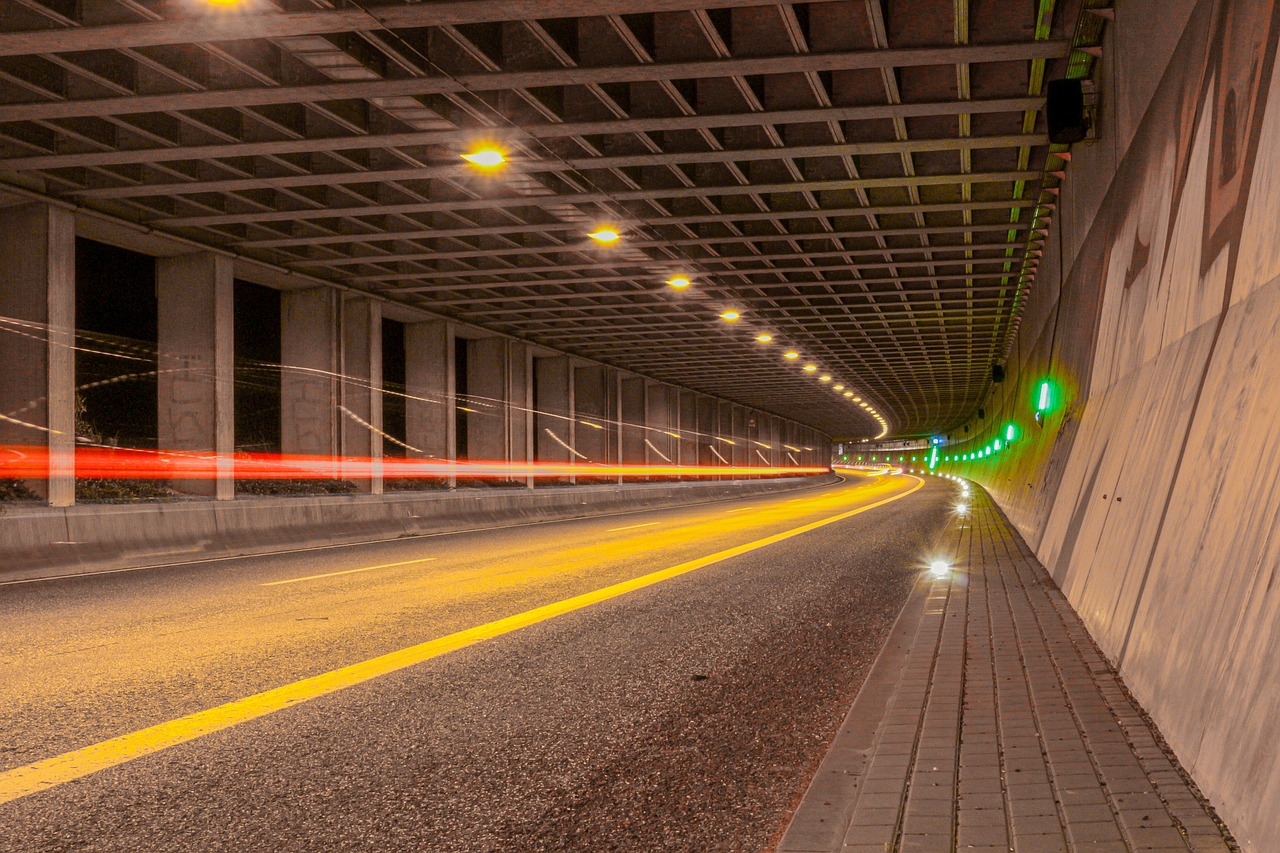
Using Technology for Communication
In today's fast-paced world, technology plays a pivotal role in keeping travelers connected, especially during emergencies. Imagine you're on a breathtaking trip, soaking in the sights, when suddenly, you find yourself in a precarious situation. Wouldn't it be comforting to know that your smartphone can be your lifeline? With the right apps and tools at your disposal, you can stay informed and connected, no matter where you are in the world.
One of the most effective ways to communicate during emergencies is through messaging apps. Platforms like WhatsApp, Facebook Messenger, and Telegram allow you to send messages, make voice calls, and even share your location in real-time, all while using Wi-Fi or mobile data. This can be particularly useful if you're in an area with limited cellular service. By sharing your location with friends or family, you can ensure someone knows where you are, which is crucial during a crisis.
Additionally, utilizing location-sharing features on your smartphone can enhance your safety. For instance, both Google Maps and Apple Maps offer options to share your real-time location with trusted contacts. This means that even if you find yourself lost or in a dangerous situation, your loved ones can track your whereabouts and provide assistance if needed. It's like having a virtual safety net that can bring peace of mind to both you and your family.
Moreover, don't underestimate the power of social media. Platforms such as Twitter and Facebook can be invaluable during emergencies. They often provide real-time updates about local conditions, safety advisories, and community support. For example, if a natural disaster strikes, local authorities and organizations will likely post updates and instructions on these platforms. By following relevant accounts and hashtags, you can stay informed and make better decisions about your safety.
Lastly, consider downloading travel-specific apps that focus on safety and communication. Apps like Red Cross and Emergency provide essential information about local emergencies, including natural disasters and health alerts. They often include features such as emergency preparedness tips and a built-in emergency kit checklist. By having these resources at your fingertips, you can quickly access critical information when it matters most.
In conclusion, leveraging technology for communication during travel emergencies is not just a smart choice—it's a necessity. By embracing the tools available to us, we can enhance our safety, stay informed, and maintain connections with loved ones, ensuring that we are never truly alone, no matter where our adventures take us.
- What should I do if I lose my phone while traveling?
First, try to retrace your steps. If you can't find it, use a computer to log into your cloud account to locate your device. Also, inform your local authorities and your mobile provider.
- How can I ensure my devices are charged during emergencies?
Always carry a portable charger and ensure your devices are fully charged before heading out. Consider investing in a solar charger for extended trips.
- Are there specific apps I should download before traveling?
Yes! Consider downloading apps for local emergency services, maps, and messaging. Additionally, having a travel insurance app can be beneficial.
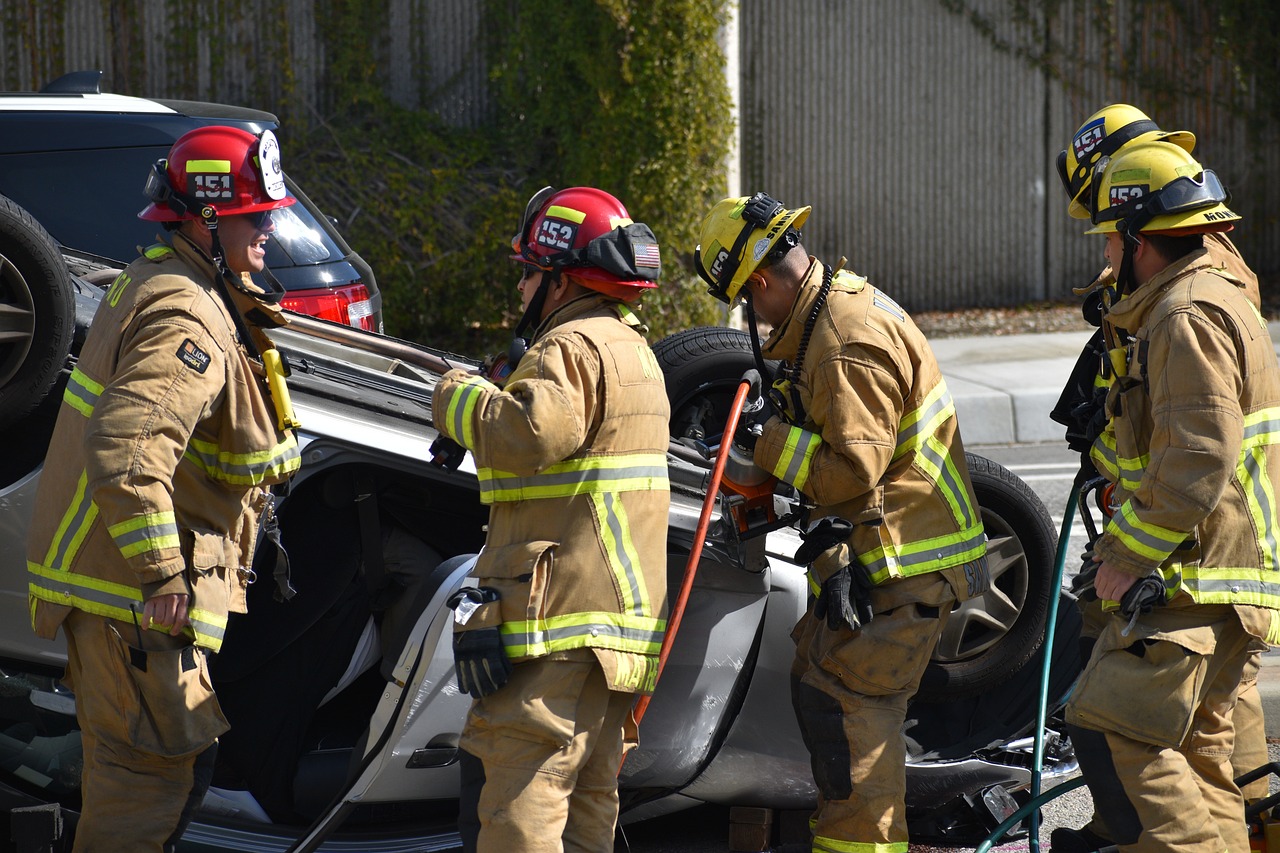
Establishing Local Contacts
When you’re traveling, having a network of local contacts can be a game-changer in emergency situations. Imagine you’re in a bustling foreign city, and suddenly your wallet goes missing or you find yourself needing urgent medical assistance. The stress can be overwhelming, but if you’ve established connections beforehand, you’ll be in a much better position to handle the situation. Local contacts, such as hotel staff, tour guides, or even friendly locals you meet along the way, can provide invaluable support during these moments of crisis.
To effectively build these connections, consider reaching out to your hotel or accommodation before your trip. Many hotels have staff who are not only knowledgeable about the area but also equipped to assist guests in emergencies. For instance, they can help you find the nearest hospital, contact local authorities, or even provide transportation if needed. Additionally, engaging with tour guides can be beneficial, as they often have extensive knowledge of the local area and can act as a reliable resource in case of an emergency.
Moreover, don’t underestimate the power of social media and travel forums. Platforms like Facebook, Reddit, or local travel groups can connect you with residents or other travelers who have firsthand experience in the area. You can ask questions, seek advice, or even arrange to meet up with someone who can show you around. This not only enhances your travel experience but also ensures that you have someone to turn to in case of unexpected events.
As you establish these local contacts, it’s a good idea to keep their information handy. You can create a simple contact list in your phone or write it down in a travel journal. Here’s a quick example of what your contact list might look like:
| Contact Type | Name | Phone Number | Notes |
|---|---|---|---|
| Hotel Manager | John Doe | (123) 456-7890 | 24-hour assistance |
| Local Tour Guide | Jane Smith | (987) 654-3210 | Fluent in English |
| Emergency Services | N/A | 112 | Local emergency number |
By having these contacts readily available, you’ll feel more secure knowing you have support just a call away. In the end, establishing local contacts is not just about being prepared; it’s about enriching your travel experience and creating a safety net that allows you to explore with confidence.

Insurance and Financial Preparedness
When you're on the move, the last thing you want to think about is what could go wrong. However, being prepared financially and having the right insurance can turn a potential disaster into a minor inconvenience. Imagine you’re in a foreign country, and your luggage goes missing or, worse, you face a medical emergency. The right insurance can be your safety net, providing you with the peace of mind to enjoy your travels without constantly worrying about unforeseen expenses.
First and foremost, it’s essential to understand the types of travel insurance available. Most travelers opt for a comprehensive plan that covers trip cancellations, medical emergencies, lost luggage, and even emergency evacuations. This broad coverage ensures that no matter what happens, you have a financial cushion to fall back on. Think of it like a superhero cape; it won’t prevent mishaps, but it will help you recover faster when they occur.
In addition to insurance, having a solid financial plan is crucial. This means not only carrying the right amount of cash but also knowing how to access your funds while abroad. Are you prepared to handle emergencies without your usual banking services? Make sure you have a mix of payment methods, including credit cards, debit cards, and some local currency. It's also wise to inform your bank about your travel plans to avoid any issues with your cards being flagged for suspicious activity.
Moreover, understanding your insurance policy is just as important as having one. Before you embark on your journey, take the time to read through your policy details. Know what is covered and what isn’t. For example, some policies might not cover activities like extreme sports or certain destinations considered high-risk. Knowing these details in advance can save you from nasty surprises when you need help the most.
In case of emergencies, having a list of necessary contacts can be invaluable. This includes your insurance provider's contact information. Many insurance companies offer 24/7 support, so you can get assistance no matter where you are. Don't forget to keep a digital copy of your insurance policy and emergency contacts on your phone or in the cloud, ensuring you can access them anytime, anywhere.
Lastly, consider additional coverage options that might be relevant to your travel plans. For instance, if you’re planning to rent a car, you may want to look into rental car insurance. Similarly, if you’re traveling with expensive equipment like cameras or laptops, consider adding coverage for those items. By taking these proactive steps, you can ensure that your travel experience remains enjoyable and stress-free, even when the unexpected happens.
- What types of travel insurance are available? There are various types, including trip cancellation, medical coverage, and luggage insurance.
- How do I choose the right travel insurance? Consider your travel activities, destinations, and any pre-existing conditions that may affect your coverage.
- Can I purchase travel insurance after I've already started my trip? Generally, travel insurance should be purchased before your trip begins, but some providers offer limited coverage for travelers already on the road.
- What should I do if I need to file a claim? Contact your insurance provider as soon as possible, and ensure you have all necessary documentation ready to support your claim.
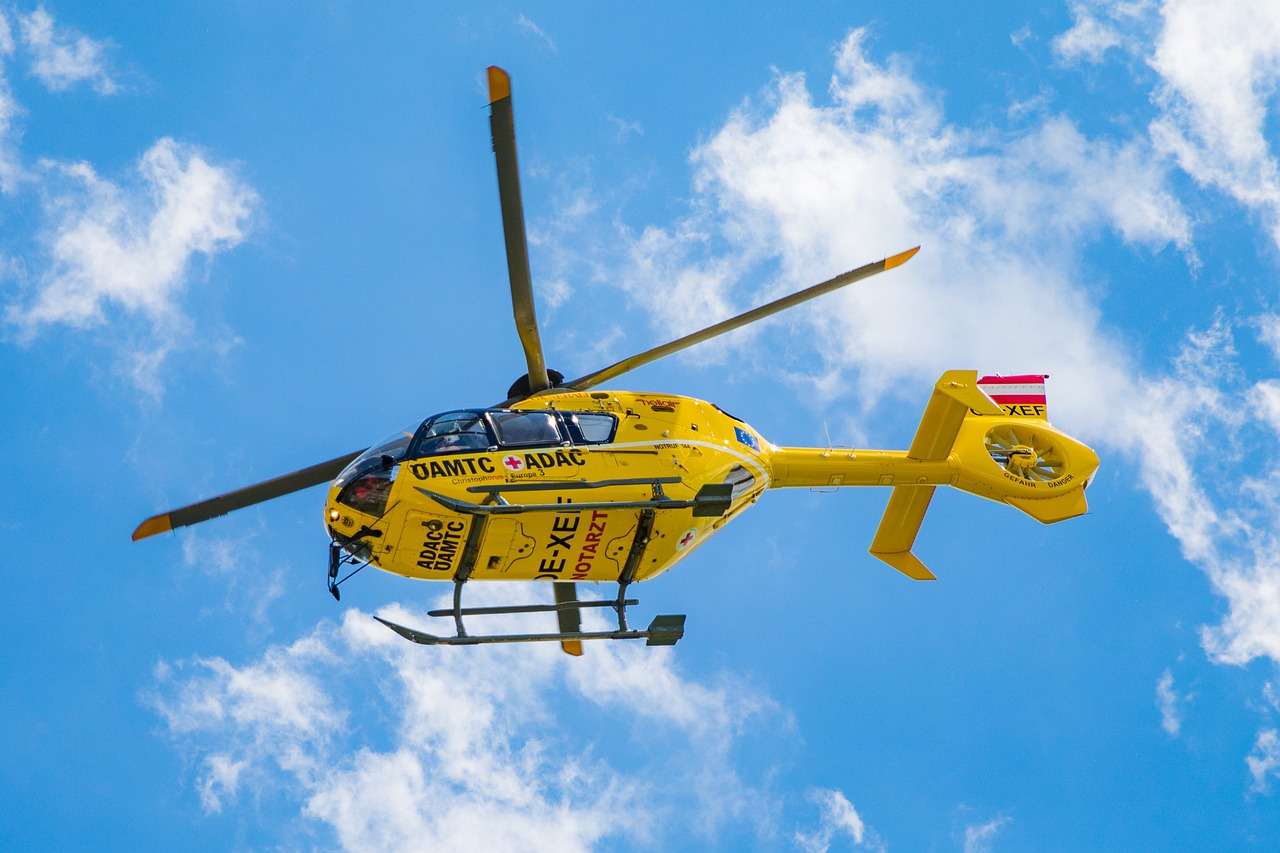
Packing an Emergency Kit
Packing an emergency kit is not just a precaution; it's a vital part of being a smart traveler. Imagine you're on a dream vacation, and suddenly, a minor mishap turns into a major inconvenience. Having an emergency kit tailored for travel can mean the difference between a stressful situation and a manageable one. So, what should you include in your kit? Let's break it down!
Your travel emergency kit should be comprehensive yet compact, ensuring that you have the essentials without lugging around unnecessary weight. Start by considering your specific needs based on your destination. For instance, if you're heading to a remote area, you might need more extensive supplies than if you were visiting a bustling city. A well-prepared kit typically includes items for health, safety, and communication.
Here are some essential items you should consider packing in your emergency kit:
- First Aid Supplies: Band-aids, antiseptic wipes, pain relievers, and any personal medications should be included. Think of these as your travel safety net, ready to catch you when you stumble.
- Emergency Food and Water: Non-perishable snacks like energy bars and a small water bottle can keep you nourished in case of unexpected delays.
- Flashlight: A compact flashlight can be a lifesaver in power outages or dark situations, illuminating your path when the unexpected darkness creeps in.
- Multi-tool: A good multi-tool can assist you in countless scenarios, from opening a bottle of water to making minor repairs.
- Important Documents: Keep copies of your passport, travel insurance, and emergency contacts in a waterproof pouch. This is your safety blueprint, guiding you through any chaos.
But don’t just toss these items into a bag and call it a day! The organization is key. Consider using a durable, waterproof backpack or tote that can easily fit in your luggage. You want your kit to be accessible, so place it in a spot where you can grab it quickly in case of an emergency. Think of it as your trusty sidekick, always ready for action.
Another critical aspect of your emergency kit is to regularly update it. Just like your travel plans, your kit should evolve. Check expiration dates on food and medical supplies every few months, and replace any outdated items. This ensures that your kit remains effective and reliable, just like a well-oiled machine. After all, you wouldn’t want to reach for a band-aid only to find it expired!
In summary, packing an emergency kit is about being proactive rather than reactive. It’s your safety net, your peace of mind, and your assurance that you can handle whatever the travel gods throw your way. So, before you zip up your suitcase, take a moment to prepare this essential kit. Trust me, when the unexpected happens, you’ll be grateful you did!
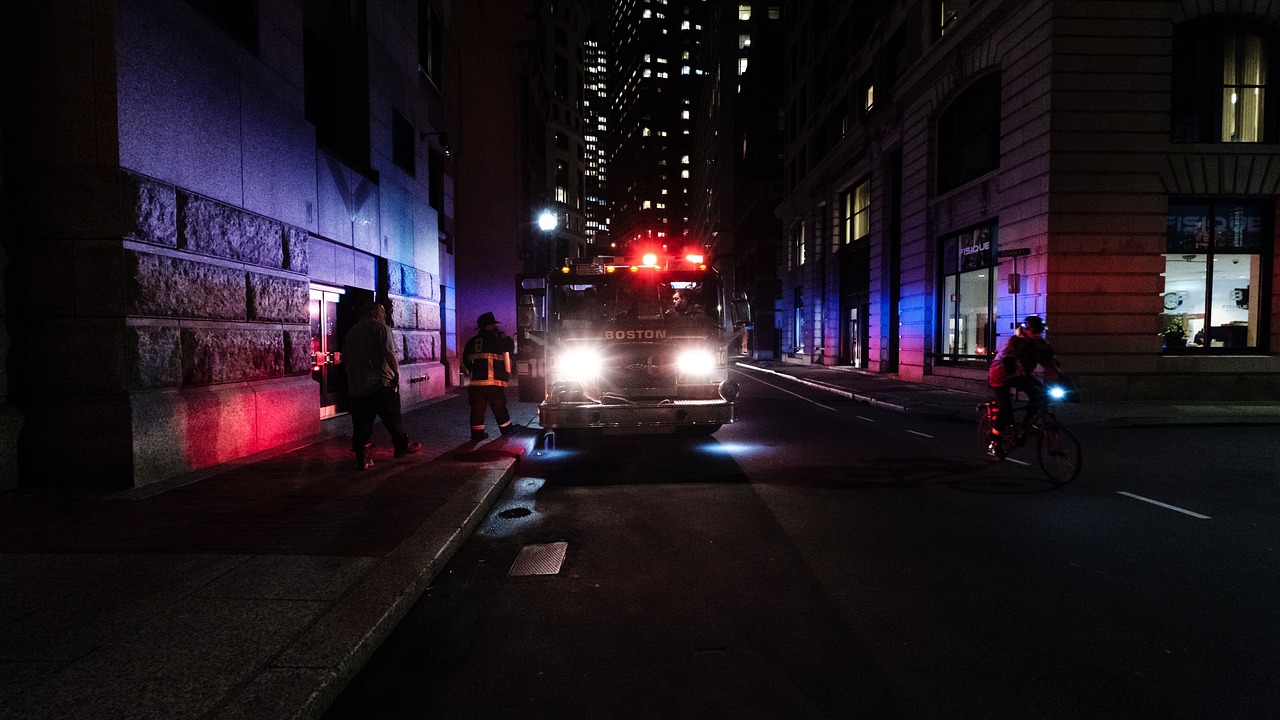
Essential Items for Your Kit
When it comes to packing an emergency kit for your travels, it’s not just about stuffing random items into a bag; it’s about being smart and strategic. Think of your emergency kit as your personal safety net, ready to catch you when the unexpected happens. So, what exactly should you include in this essential kit to ensure you're well-prepared for any situation? Here’s a breakdown of must-have supplies that cater to health, safety, and communication needs.
First and foremost, health supplies are crucial. You never know when a headache might strike or when you might need to treat a minor cut or scrape. Therefore, consider including:
- Adhesive bandages of various sizes
- Antiseptic wipes or cream
- Over-the-counter pain relievers such as ibuprofen or acetaminophen
- Any personal medications you need, along with a copy of your prescriptions
Next, let’s talk about communication tools. In an emergency, staying connected is vital. Make sure your kit includes:
- A fully charged portable charger for your phone
- A local SIM card or an international roaming plan to keep you connected
- A printed list of emergency contacts, including local authorities and family members
Another essential component of your kit should be safety gear. This can include items that help you navigate through emergencies. Consider adding:
- A whistle to signal for help
- A flashlight with extra batteries
- A multi-tool or Swiss army knife for various uses
Furthermore, food and water cannot be overlooked. In case of a natural disaster or unforeseen delays, having non-perishable snacks and water can be lifesaving. Pack:
- Energy bars or protein bars
- Dried fruits and nuts
- A small water purification system or purification tablets
Lastly, don’t forget to include important documents. Make copies of your passport, travel insurance, and any other critical documents and store them in a waterproof bag. This way, if you lose your originals, you have backups ready to go.
In summary, your emergency kit should be a well-rounded collection of items that address health, communication, safety, sustenance, and documentation. By carefully curating these essentials, you will not only enhance your preparedness but also gain peace of mind, allowing you to focus on enjoying your travels to the fullest.
Q: How often should I check my emergency kit?
A: It's a good idea to check your emergency kit every six months to ensure that all items are in good condition and that any perishable items are replaced.
Q: Can I use my emergency kit for local trips as well?
A: Absolutely! Your emergency kit is versatile and can be used for both long-distance travel and local excursions. Always be prepared, no matter where you go!
Q: What should I do if I have limited space in my luggage?
A: Focus on the essentials and prioritize smaller, multi-functional items. You can also consider a smaller, more compact emergency kit designed specifically for travel.

Updating Your Kit Regularly
When it comes to emergency preparedness, one of the most critical yet often overlooked aspects is the regular updating of your emergency kit. Just like a car requires regular maintenance to function optimally, your emergency kit needs periodic checks to ensure that all items are in good condition and ready for use. Imagine being in a situation where you need a first aid kit, only to find that the band-aids have expired or the antiseptic has dried up! This could mean the difference between a minor inconvenience and a significant problem.
To keep your emergency kit effective, it's essential to set a schedule for updates. A good rule of thumb is to review your kit every six months. This allows you to replace expired items, check the functionality of tools, and even add new supplies that may have become essential since your last review. For instance, if you’ve added a new medication to your routine, it would be wise to include it in your kit as well. Think of it as a personal inventory that grows and adapts to your needs.
In addition to checking expiration dates, ensure that your kit reflects the specific needs of your travel plans. Different destinations may require different supplies. For example, if you plan to travel to a tropical location, consider adding insect repellent and sunscreen. Conversely, if heading to a colder climate, extra warm clothing or thermal blankets might be necessary. Tailoring your kit based on your travel itinerary not only enhances your preparedness but also gives you peace of mind.
Here’s a simple table to illustrate some common items that should be checked and updated regularly in your emergency kit:
| Item | Check Frequency | Notes |
|---|---|---|
| First Aid Supplies | Every 6 months | Check for expired items and replenish as needed. |
| Medications | Every 6 months | Add any new prescriptions and remove expired ones. |
| Food Supplies | Every 6 months | Replace perishable items and check expiration dates. |
| Flashlight & Batteries | Every 6 months | Test flashlight functionality and replace batteries. |
| Emergency Contact Information | Every 6 months | Update any changes in contacts or numbers. |
Beyond just checking the items, consider the organization of your kit as well. A well-organized kit makes it easier to find what you need in a hurry. Use clear, labeled containers or bags to categorize supplies, so you can quickly grab what’s necessary without fumbling around. Think of it like organizing your kitchen; the easier it is to find your ingredients, the quicker you can whip up a meal!
In conclusion, regularly updating your emergency kit is not just a good practice; it’s a necessary part of being a responsible traveler. By staying proactive and ensuring your kit is always ready for action, you can travel with confidence, knowing that you are prepared for whatever might come your way. So, take a moment to check your kit today—your future self will thank you!
Q: How often should I update my emergency kit?
A: It's recommended to check and update your emergency kit every six months to ensure all items are functional and not expired.
Q: What should I include in my emergency kit?
A: Essential items include first aid supplies, medications, food and water, a flashlight, batteries, and emergency contact information. Tailor your kit based on your travel plans.
Q: How can I organize my emergency kit effectively?
A: Use clear, labeled containers to categorize supplies. This makes it easier to find what you need quickly during an emergency.
Q: What if I travel to different types of climates?
A: Adjust your kit according to the climate of your destination. For tropical areas, include insect repellent, while colder regions may require thermal blankets and extra clothing.

Staying Informed About Destinations
When it comes to traveling, knowledge is your best friend. Staying informed about your destination can be the difference between a stressful experience and a smooth adventure. Imagine arriving in a new country, only to discover that a natural disaster has struck or that there are sudden travel restrictions. Sounds daunting, right? By doing your homework before you go, you can avoid such pitfalls and enjoy your trip to the fullest.
One effective way to keep yourself updated is by utilizing various travel apps and online resources. These tools can provide real-time information on safety alerts, health advisories, and local news. For instance, apps like TripIt and TravelSafe can help you organize your itinerary while also keeping you posted on any emergencies that may arise. Moreover, social media platforms can be a goldmine of information, allowing you to follow local news outlets and community pages for updates. It’s like having a local friend who’s always in the know!
Additionally, engaging with local communities can significantly enhance your travel experience. Connecting with locals not only helps you gain valuable insights into the culture and customs but also provides you with crucial information about safety and potential risks. For example, local residents can inform you about areas to avoid or current events that might affect your plans. Whether it’s striking up a conversation with a shopkeeper or joining a community event, these interactions can be incredibly beneficial.
But what if you don’t speak the local language? No worries! Nowadays, technology has your back. Translation apps like Google Translate can help bridge the communication gap, enabling you to ask questions and get the information you need. Plus, many locals appreciate the effort you put into trying to communicate, which can lead to more open and helpful interactions.
Moreover, keeping an eye on travel advisories from your government can provide essential insights into the safety of your destination. Websites like the U.S. State Department or your country's equivalent regularly update travel warnings and safety tips that can help you make informed decisions. For instance, if there’s a warning about civil unrest in a particular area, you can adjust your travel plans accordingly. It’s all about being proactive and prepared!
In summary, staying informed about your travel destination is not just about avoiding trouble; it’s about enriching your entire travel experience. By leveraging technology, engaging with locals, and keeping up with official advisories, you can navigate your journey with confidence and peace of mind. So, before you pack your bags, take some time to gather information—it’s an investment in your safety and enjoyment!
- How can I stay updated on local emergencies while traveling? Utilize travel apps, follow local news on social media, and keep in touch with your hotel or local contacts.
- What should I do if I encounter a natural disaster? Follow local authorities' instructions, stay informed through news outlets, and ensure you have a communication plan in place.
- Are there specific apps recommended for travel safety? Yes, apps like TripIt, TravelSafe, and local government travel advisory apps are highly recommended.
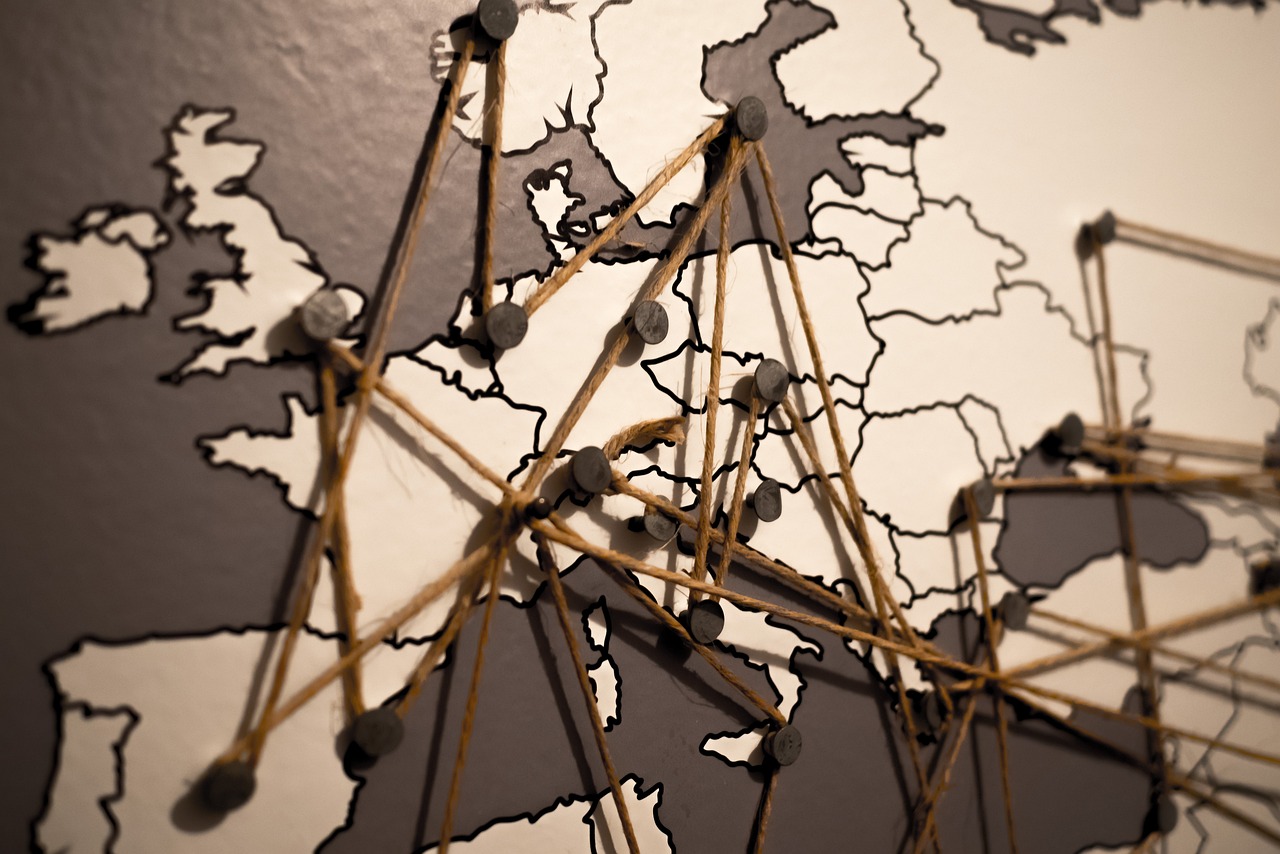
Utilizing Travel Apps and Resources
In today's digital age, travel apps and online resources have become essential tools for frequent travelers, especially when it comes to emergency preparedness. Imagine you're on a trip, and suddenly, a natural disaster strikes or you lose your wallet. How would you react? Well, with the right apps at your fingertips, you can navigate these situations with greater ease and confidence.
First and foremost, having a reliable weather app can be a game changer. Apps like Weather.com or AccuWeather provide real-time alerts about severe weather conditions in your area. This means you can stay one step ahead of any potential storms, floods, or other natural disasters. It’s like having a personal meteorologist in your pocket! Furthermore, these apps often offer radar maps and forecasts that can help you plan your activities accordingly.
Next, consider downloading emergency alert apps that provide information about local emergencies, safety tips, and evacuation routes. For instance, the FEMA app offers disaster resources and alerts tailored to your location. You can receive notifications about emergencies in your area, ensuring that you’re always in the loop. It’s akin to having a safety net that keeps you informed and prepared.
Another invaluable resource is the use of travel safety apps. Apps like TripIt not only help you organize your travel itinerary but also offer safety alerts and updates about your destinations. This can be particularly useful if you're traveling to a country where civil unrest or health emergencies are prevalent. By staying informed through these platforms, you can make timely decisions about your travel plans.
Don't forget about communication tools! Apps like WhatsApp and Viber allow you to stay connected with friends and family back home, even if your phone service is disrupted. In emergency situations, being able to quickly communicate your status can provide peace of mind to both you and your loved ones. It's like having a lifeline that bridges the gap between you and your support system.
Lastly, engaging with local resources can enhance your travel experience and safety. Many cities have their own local apps that provide information on public transportation, local emergency services, and community alerts. For example, apps like Citymapper can help you navigate public transport, while local tourism boards often have apps that offer insights into safe areas and community events. By tapping into these resources, you not only enrich your travel experience but also bolster your emergency preparedness.
In summary, utilizing travel apps and resources is not just about convenience; it's about ensuring your safety and well-being while exploring the world. By incorporating these tools into your travel routine, you can embark on your adventures with confidence, knowing that you’re well-prepared for any situation that may arise.
- What are the best travel apps for emergency preparedness? Some of the best apps include weather alerts, emergency services apps, and communication tools like WhatsApp.
- How can I stay informed about local emergencies while traveling? Download local emergency alert apps and keep an eye on news apps that cover your destination.
- Are there specific apps for health emergencies? Yes, apps like HealthMap can provide information on disease outbreaks and health advisories in your area.

Engaging with Local Communities
When you travel, the world opens up in ways that can be both exciting and overwhelming. One of the best ways to enhance your travel experience—and ensure your safety—is by . Think of it as diving into a pool of culture, knowledge, and support that can make your journey not only safer but also richer. Have you ever thought about how a simple conversation with a local can lead to discovering hidden gems that no travel guide could ever reveal?
Building connections with locals can provide invaluable insights into the area you're visiting. Locals know the ins and outs of their community, including the safest routes to take, the best places to eat, and even the current events happening around town. This local wisdom can be a lifesaver in emergencies. For example, if you're caught in a sudden storm or natural disaster, having a local friend can help you find shelter or navigate to safety faster than any app could.
So, how can you effectively engage with local communities? Here are a few strategies:
- Stay in Local Accommodations: Opt for guesthouses, homestays, or locally-owned hotels instead of large chain hotels. This not only supports the local economy but also provides opportunities to interact with your hosts and other travelers.
- Participate in Community Events: Check local calendars for festivals, markets, or community gatherings. These events are perfect for mingling with locals and learning about their customs and traditions.
- Take Classes or Workshops: Whether it’s cooking, dancing, or crafting, engaging in a local class can help you learn something new while meeting residents who share your interests.
Additionally, don't underestimate the power of social media. Platforms like Facebook, Instagram, and even local forums can connect you with community groups or events happening in your travel destination. By following local hashtags or joining groups, you can find opportunities to engage directly with residents, which can lead to meaningful exchanges and friendships.
Moreover, engaging with local communities can also provide a sense of belonging and connection. Imagine sitting at a local café, chatting with a friendly barista about the best spots to visit, or sharing a meal with a family who invites you to their home. These experiences can transform your travel from a mere checklist of sights to a tapestry of memories woven with human connections.
In times of crisis or emergencies, having local contacts can be incredibly beneficial. They can provide real-time information and assistance, ensuring that you are not navigating challenges alone. So, the next time you travel, remember that the world is not just a series of landmarks; it’s filled with people who have stories to tell and experiences to share. By engaging with local communities, you not only enhance your own travel experience but also contribute to a more connected and understanding world.
Q1: How can I find local events or community gatherings while traveling?
A1: You can check local tourism websites, social media platforms, and community bulletin boards. Apps like Meetup or Facebook Events are also great resources for finding local happenings.
Q2: Is it safe to engage with locals during my travels?
A2: Generally, engaging with locals is safe and can enhance your experience. However, always trust your instincts and use common sense. Choose public places for meetings and be cautious about sharing personal information.
Q3: What if I don't speak the local language?
A3: Language barriers can be challenging, but many locals appreciate the effort. Use translation apps, learn a few basic phrases, or find locals who speak your language. Body language and gestures can also go a long way!
Frequently Asked Questions
- What should I include in my travel emergency kit?
Your travel emergency kit should include essential items such as a first aid kit, bottled water, non-perishable snacks, a flashlight, a multi-tool, any necessary medications, and a portable phone charger. Tailoring your kit to your specific needs and the destination is key, so consider adding items like insect repellent or sunscreen if you're heading to a tropical locale.
- How can I stay informed about potential emergencies while traveling?
Staying informed is easier than ever with technology! Utilize travel apps that provide real-time updates on local conditions, safety advisories, and emergency alerts. Additionally, follow local news outlets on social media and check the websites of the U.S. State Department or your country's foreign office for travel advisories.
- Why is travel insurance important?
Travel insurance is your safety net when unexpected events occur. It can cover medical emergencies, trip cancellations, lost luggage, and more. Without insurance, you could face hefty bills or lose money on non-refundable expenses. It’s better to have that peace of mind knowing you’re protected against the unexpected!
- How can I establish local contacts before traveling?
Before you travel, research your destination to find local contacts such as hotel staff, tour guides, or even local friends. You can reach out to them via social media or travel forums. Having these connections can provide immediate assistance during emergencies and help you navigate unfamiliar situations.
- What are some common travel emergencies I should prepare for?
Common travel emergencies include medical issues like sudden illnesses or injuries, natural disasters such as earthquakes or hurricanes, and losing personal belongings like passports or luggage. Being aware of these possibilities helps you create a solid emergency plan tailored to your travel itinerary.
- How often should I update my emergency kit?
It’s a good idea to review and update your emergency kit at least every six months or before each trip. Check the expiration dates on medications and food items, and replace any used or outdated supplies. Keeping your kit fresh ensures you’re always prepared for whatever comes your way!
- What technology can I use for communication during emergencies?
There are many tools at your disposal! Messaging apps like WhatsApp or Signal allow for free communication over Wi-Fi, while location-sharing features on apps like Google Maps can help loved ones track your whereabouts. Ensure your phone is charged and consider having a portable charger handy!
- How can engaging with local communities enhance my safety?
Engaging with locals can provide you with insider knowledge about the area, including potential risks and safe spots. Locals often know the best emergency resources and can offer assistance in times of need. Plus, building these connections can enrich your travel experience and make you feel more at home!



















